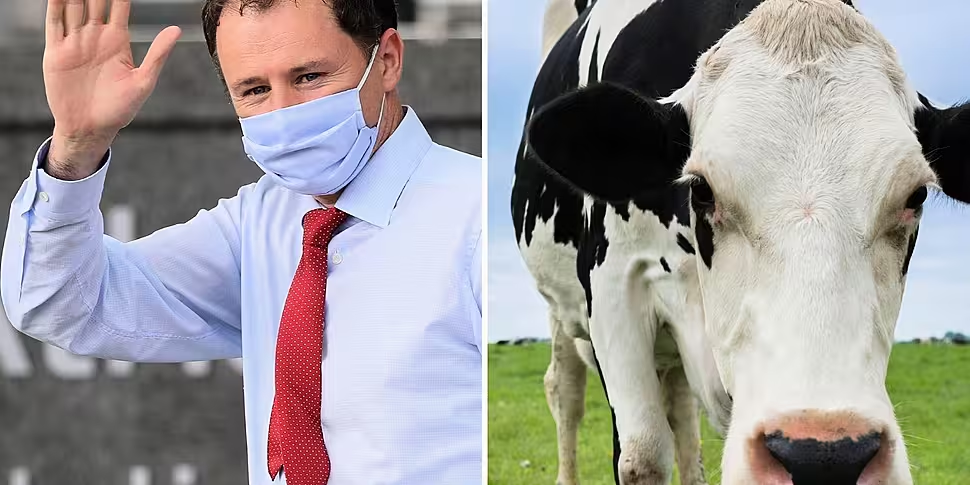There are no plans to reduce the size of Ireland’s herd to address climate change, according to the Agriculture Minister.
The Government's latest Climate Action Plan commits to a 22% - 30% reduction in Agriculture emissions by 2030.
The agriculture target is considerably lower than those set for other sectors of the economy; however, farmers have voiced fears it will inevitably lead to a reduction in livestock numbers.
The reductions are necessary to ensure Ireland meets the climate reductions target agreed at COP26 in Glasgow earlier this month.
Just last weekend, a group of more than 200 farmers from every county in Ireland gathered outside the Department of Agriculture to call for increased funding and a new plan to protect the sector.
On The Pat Kenny Show this morning, Agriculture Minister Charlie McConalogue insisted Ireland can meet the targets without reducing the herd.
“I want to be absolutely crystal clear on that,” he said. “We are not seeking to reduce the herd size nor are we trying to reduce the amount of food our farmers and food industry produce.
“In my well over a year as minister, not once has someone come to me saying we should reduce the food we produce, but I think everyone can agree we want to reduce the emissions we produce.”
Currently, agriculture emits 35% of Ireland’s national greenhouse gases – far higher than the European average of 11%.
More than 60% of the agricultural emissions comes from methane associated with belching animals.
Minister McConalogue said slaughtering animals at a younger age can reduce the overall methane output.
“I am also investing significantly, through Teagasc, in relation to emerging methods as to how we can actually reduce methane from animals over the time ahead,” he said.
“For example, we are seeing already feed-additive products coming through the regulatory process at European level which, when fed as supplements to animals, actually reduces their methane output.”
He said farmers are also being encouraged to reduce the need for chemical fertiliser through increased focus on soil fertility.
“By introducing clover swards and multi-species swards to grow grass, we can fix a lot of nitrogen naturally into the soil and reduce the need for chemical nitrogen as a result,” he said.
“Also, the way we use organic fertiliser - which is slurry. There are tremendous efficiencies which can be made in terms of how that is used, including the adoption of low emission slurry spreading equipment which we have seen significant progress on in the last two or three years.”
The minister said grants are available to encourage farmers to move to less climate-intensive practices.
“Cost-benefit analysis shows farmers will actually save money through this practice because of the better efficiency of the organic fertiliser,” he said.
“It’s a win/win measure but it does require up-front investment which farmers are investing in and we will see significant progress in that over the next period of time.”
Ge said Government recognises the “tremendous platform and industry” of agriculture and was committed to backing farmers to become even more sustainable.
“The next decade will be a strong one for Irish agriculture,” he said. “There are obviously anxieties and concerns out there at the moment, but it is going to strengthen over the next decade because it is such a sustainable food-producing model we have.”









